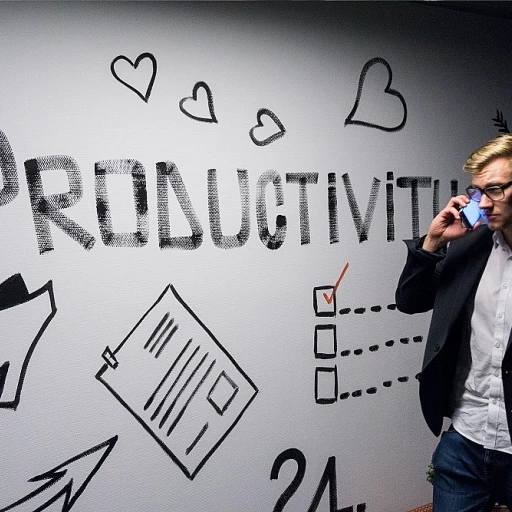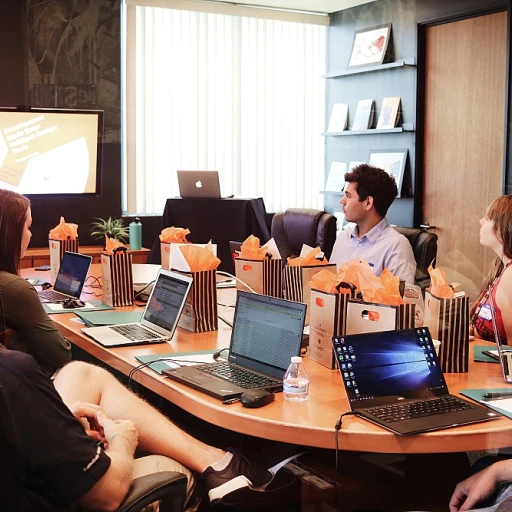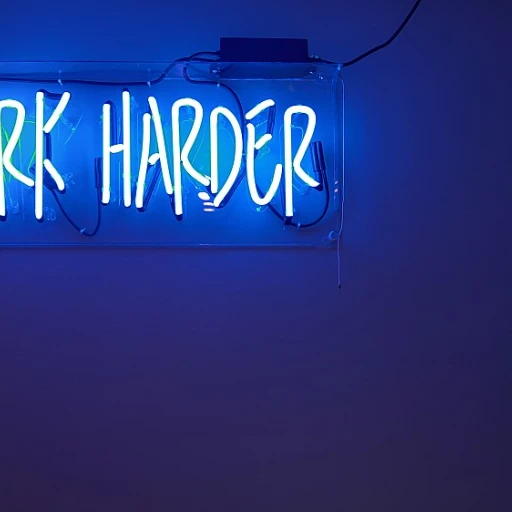
Understanding the McKinsey internship recruitment process
How the McKinsey Internship Selection Works
For students aiming to join the McKinsey internship program, understanding the recruitment process is crucial. McKinsey & Company is known for its rigorous and structured approach, which mirrors the standards of top consulting firms. The process is designed to identify candidates with strong problem solving skills, business acumen, and the potential to thrive in consulting environments.
- Online Application: The journey begins with submitting your application, which typically includes a resume and cover letter. Highlight your relevant experience, academic achievements, and motivation for consulting. Tailor your application to reflect the qualities McKinsey consultants value, such as analytical thinking and leadership.
- Screening and Assessments: If your application stands out, you may be invited to complete online assessments. One unique element is the McKinsey Solve game, which evaluates your cognitive abilities and problem solving approach. This step helps the company assess your fit for the business analyst role and other positions.
- First Round Interviews: Successful candidates move to the interview stage. This usually involves a combination of personal experience interviews and case interviews. The interview process is designed to test both your interpersonal skills and your ability to tackle complex business problems.
- Final Round Interviews: The final stage often includes more in-depth case interviews with senior McKinsey consultants. Here, you’ll need to demonstrate your consulting skills, structured thinking, and ability to communicate insights clearly.
- Offer and Onboarding: If you impress throughout the process, you may receive an offer for the McKinsey internship. This is a significant step toward a potential full time role after graduation.
Each stage of the application process is an opportunity to showcase your skills and motivation for consulting. It’s important to prepare thoroughly, not just for the case interview, but also for the behavioral and situational questions that reveal your work ethic and cultural fit. For more insights into how recruiters approach HR job interviews, check out this guide on recruiter interview strategies.
Understanding the process will help you manage your time and energy effectively, ensuring you present your best self at every stage. In the next section, we’ll look at how to craft a compelling application that stands out in a competitive field.
Crafting a compelling application
Building a Standout Application Package
Applying for a McKinsey internship is highly competitive, and your application is the first impression you make on the firm. Consulting firms like McKinsey look for candidates who demonstrate strong problem solving skills, leadership potential, and a genuine interest in business. Here’s how you can craft an application that stands out in the process.
- Tailor your resume: Highlight experiences that showcase analytical thinking, teamwork, and leadership. Use clear, concise language to describe your achievements, focusing on measurable impact. For example, mention how you contributed to a project’s success or solved a complex problem.
- Write a compelling cover letter: Your cover letter should reflect your motivation for joining the McKinsey internship program and your understanding of the consulting industry. Explain why you are interested in consulting McKinsey and how your background aligns with the company’s values.
- Showcase relevant skills: Emphasize skills such as data analysis, communication, and adaptability. If you have participated in business competitions, insight programs, or have relevant work experience, make sure to include these details.
- Demonstrate academic excellence: While grades are not everything, strong academic performance signals your ability to handle the rigorous work at McKinsey. Mention any honors, scholarships, or relevant coursework.
- Highlight extracurricular involvement: McKinsey consultants value well-rounded candidates. Involvement in student organizations, volunteer work, or leadership roles can set you apart from other students.
Remember, the application process is also about fit. McKinsey is interested in candidates who are not only capable but also align with the company’s culture and values. Take the time to research the firm and reflect this understanding in your application materials.
For more guidance on preparing your application and understanding what HR professionals look for, check out essential insights for HR job interviews.
Preparing for the personal experience interview
What to Expect in the Personal Experience Interview
The personal experience interview is a crucial part of the McKinsey internship selection process. Unlike the case interview, this segment focuses on your past actions, motivations, and soft skills. Consulting firms like McKinsey want to see how you handle real business challenges, work in teams, and demonstrate leadership. Your ability to reflect on your experiences and communicate them clearly can set you apart from other candidates.
- Behavioral questions: Expect questions about times you solved a problem, managed conflict, or influenced others. The interviewers are looking for evidence of skills that align with the McKinsey company values.
- STAR method: Structure your answers using Situation, Task, Action, and Result. This helps you present your experience in a logical, concise way.
- Relevance to consulting: Even if your background is not in business or consulting, highlight transferable skills. For example, leading a student project or volunteering can show initiative and teamwork.
- Self-awareness: Be honest about your gaps or challenges. McKinsey consultants value candidates who can learn from setbacks and adapt quickly.
Demonstrating Skills Beyond Academics
McKinsey looks for more than just academic excellence. The personal experience interview is your chance to show qualities like resilience, empathy, and a growth mindset. Candidates who can articulate how their unique background will add value to the internship program often stand out.
- Share examples where you made a measurable impact, whether in a part-time job, student club, or internship.
- Show how you approach problem solving in real-world situations, not just in theory.
- Discuss how you manage your time and priorities, especially when balancing multiple commitments.
Tips for Success in the Interview Process
Preparation is key. Review your resume and cover letter to recall specific examples that align with McKinsey’s core values. Practice articulating your stories out loud, focusing on clarity and relevance. If you’re interviewing remotely, make sure your setup is professional and distraction-free. For insights on how remote hiring is changing the interview process, check out this guide on effective remote hiring in HR interviews.
Remember, the personal experience interview is not just about what you have done, but how you reflect on those experiences and what you learned. This self-awareness is highly valued by consulting McKinsey and other top consulting firms.
Mastering case interviews with an HR perspective
Approaching Case Interviews with an HR Mindset
Case interviews are a core part of the McKinsey internship selection process. These interviews are designed to assess your problem solving skills, business acumen, and ability to think under pressure—qualities that McKinsey consultants use every day. While technical and analytical thinking are crucial, HR professionals also look for interpersonal skills, communication, and how you collaborate in a team setting.- Understand the Structure: McKinsey case interviews typically present a real-world business problem. You will be expected to break down the issue, ask clarifying questions, and structure your approach logically. Familiarize yourself with the format by practicing with sample cases and reviewing the McKinsey Solve game, which tests your analytical thinking in a digital environment.
- Demonstrate Problem Solving: The interview process is not just about getting the right answer. Show how you approach complex problems, make assumptions, and use data to support your recommendations. Explain your thought process clearly so the interviewer can follow your reasoning.
- Highlight Communication Skills: Consulting firms like McKinsey value candidates who can communicate their ideas effectively. Practice articulating your solutions concisely and confidently, as you would when presenting to clients or colleagues in a business analyst role.
- Showcase Teamwork and Adaptability: McKinsey consultants often work in teams. During the case, demonstrate openness to feedback and a willingness to adjust your approach. This signals that you can collaborate well in the internship program and, potentially, as a full time hire.
- Connect to Your Application: Use examples from your resume or cover letter to illustrate how your past experience prepares you for the challenges of consulting McKinsey style. For instance, if you have participated in a business competition or an insight program, reference how those experiences helped you develop relevant skills.
| What HR Looks For | How to Demonstrate |
|---|---|
| Analytical Thinking | Break down the case logically, use frameworks, and quantify your analysis where possible. |
| Communication | Speak clearly, summarize your findings, and check in with the interviewer. |
| Teamwork | Be receptive to hints, build on feedback, and show collaborative spirit. |
| Business Sense | Relate your solutions to real business outcomes and consider the client’s perspective. |
Addressing gaps and unique challenges in your profile
Turning Gaps into Strengths
Many candidates worry about gaps in their resume or unique challenges in their background when applying for a McKinsey internship. However, consulting firms like McKinsey value diverse experiences and problem solving skills. If you have a non-traditional academic path, a break in your work history, or limited business experience, you can still stand out by reframing these aspects as strengths in your application and interviews.
- Showcase transferable skills: Highlight how your previous experiences, even outside of business, have built skills relevant to consulting. For example, leadership in student organizations, volunteer work, or part-time jobs can demonstrate teamwork, initiative, and adaptability.
- Be honest and proactive: Address any gaps directly in your cover letter or during the interview process. Explain what you learned during those periods and how the experience will help you succeed in the internship program.
- Demonstrate continuous learning: Consulting mckinsey values candidates who show a commitment to personal and professional growth. Mention any online courses, certifications, or self-driven projects that kept your skills sharp during gaps.
Standing Out with Unique Experiences
McKinsey consultants come from a wide range of backgrounds. If you have experience in areas like the arts, sciences, or entrepreneurship, use these to your advantage. In both the application process and case interviews, draw connections between your unique background and the business analyst role. For instance, scientific research can illustrate analytical thinking, while creative projects can highlight innovative problem solving.
Addressing Limited Consulting Exposure
Not every student has prior consulting internships. If this is your situation, focus on demonstrating your understanding of the mckinsey company and the consulting industry. Show that you have researched the mckinsey internship, understand the interview process, and are familiar with tools like the mckinsey solve game. Use examples from your academic or extracurricular work to illustrate your ability to break down complex problems, communicate clearly, and work in teams.
Tips for Overcoming Common Challenges
- Practice case interviews with peers or mentors to build confidence.
- Seek feedback on your resume and cover letter from people with consulting experience.
- Prepare stories that demonstrate resilience, adaptability, and a growth mindset—qualities valued by the mckinsey insight program and full time roles alike.
Remember, McKinsey is looking for candidates who can bring fresh perspectives and solve problems creatively. Use your unique journey to show how you will contribute to the team and make the most of the internship mckinsey offers.
Following up and maintaining professionalism
Staying Engaged After the Interview
Once you’ve completed the interview process for a McKinsey internship, your work isn’t quite finished. How you follow up and maintain professionalism can make a difference, especially in competitive consulting environments. Here’s how candidates can leave a lasting positive impression:
- Send a thoughtful thank-you email: Within 24 hours, express gratitude for the opportunity to interview. Reference specific aspects of the interview or case that resonated with you, and briefly reinforce your interest in the internship program and consulting work at McKinsey.
- Be patient and professional: The application process at consulting firms like McKinsey can take time. Avoid sending multiple follow-ups. If you haven’t heard back after the communicated timeline, one polite inquiry is appropriate.
- Reflect on your experience: Use this period to assess your performance in the case interviews and personal experience interview. Identify areas where your problem solving or business skills could be improved for future opportunities.
- Stay connected with McKinsey: Engage with the company’s insight programs, webinars, or events for students. This shows ongoing interest and helps you build relevant skills and connections, whether or not you receive an offer.
- Prepare for next steps: If you’re offered the internship, review the details carefully and respond promptly. If not, request feedback if possible, and use it to strengthen your resume, cover letter, and interview skills for future consulting roles.
Demonstrating Professionalism Throughout
Professionalism doesn’t end when the interview does. McKinsey consultants value candidates who communicate clearly, respect the process, and show resilience. Whether you’re aiming for a business analyst role or a full time position after the internship, how you handle this stage can influence your reputation within the company and the broader consulting industry.
Remember, every interaction—during and after the interview—reflects your potential as a future consultant. Stay proactive, positive, and focused on continuous improvement as you pursue your McKinsey internship goals.













